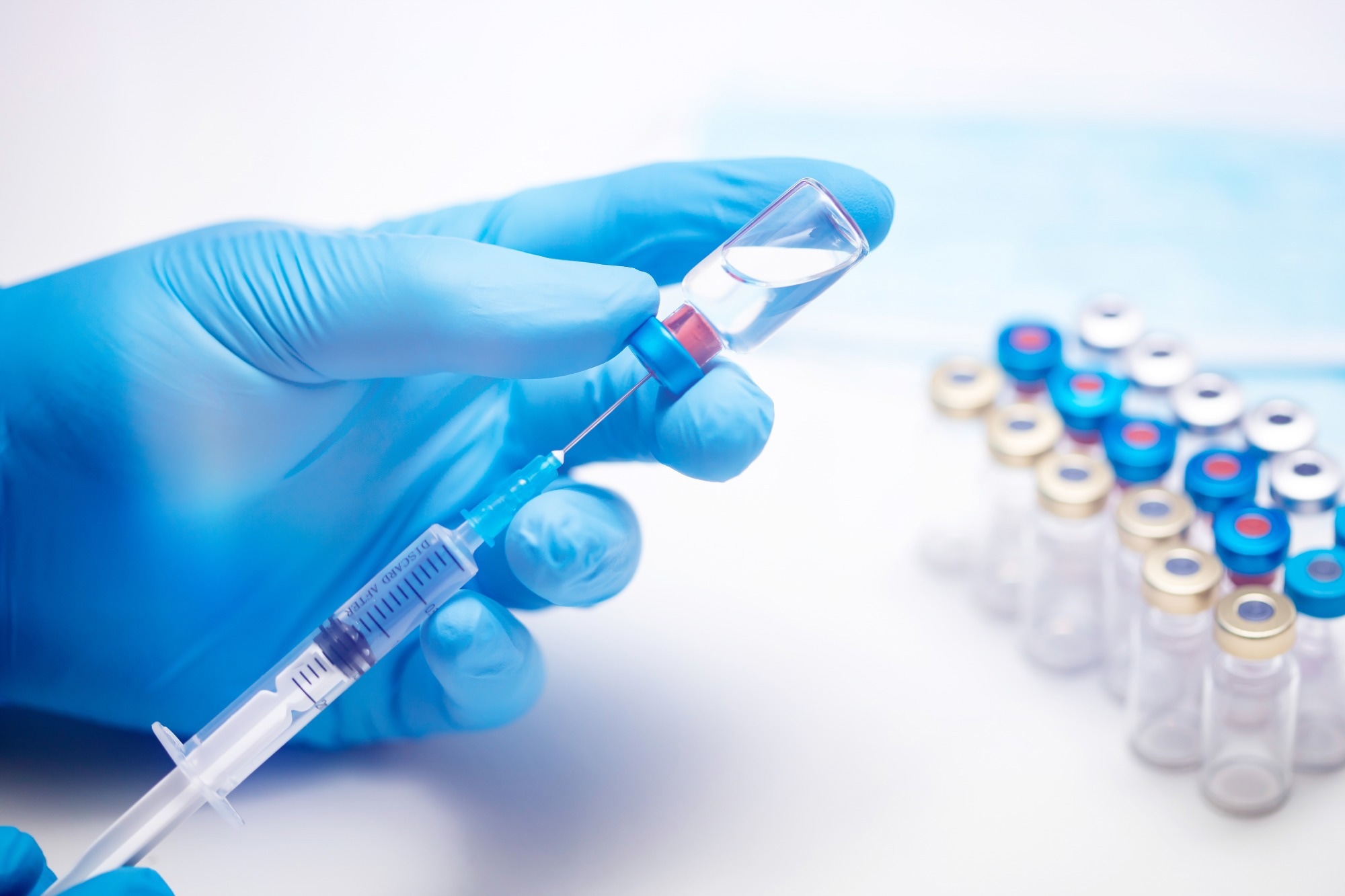They found that over 12 months after the BCG-Denmark vaccination, mean time without a recurrence increased by 53%. Further, self-reported cold-sore recurrences were also found to be reduced significantly.
Although the vaccine was well-tolerated with no serious adverse events reported, a minor increase in the risk of a first cold-sore episode was observed post-vaccination.
 Study: Bacillus Calmette-Guérin vaccination for protection against recurrent herpes labialis: a nested randomised controlled trial. Image Credit: Melinda Nagy/Shutterstock.com
Study: Bacillus Calmette-Guérin vaccination for protection against recurrent herpes labialis: a nested randomised controlled trial. Image Credit: Melinda Nagy/Shutterstock.com
Background
Herpes labialis, or “cold sore” is caused by the re-activation of the herpes simplex virus (HSV) in the orofacial region, with up to 40% chance of a recurrence that may impede the quality of life of patients. The absence of a vaccine and higher costs, greater side effects, and low effectiveness of oral medications emphasize a need for alternative approaches.
BCG, the anti-tuberculosis vaccine, has nonspecific effects on the immune system, potentially conferring protection against various infectious diseases. Observational studies have reported the benefits of BCG vaccination in patients with herpes labialis, but there is a lack of RCTs confirming these results.
As a nested RCT under the BRACE (short for “BCG vaccination to reduce the impact of coronavirus disease 2019 (COVID-19) in healthcare workers”) trial, the present study compared the effects of the BCG vaccine to placebo in patients with recurrent cold sores.
About the study
In the multicenter, phase 3 BRACE RCT, 6,828 healthcare workers were enrolled across 36 sites in Australia, Spain, the Netherlands, Brazil, and the United Kingdom. The participants were randomized (1:1) to receive 0.1 ml of intradermal BCG-Denmark vaccine in the test group and either no intervention or a placebo in the control group.
The mean age was 42 years, and 75% of the participants were females. They were followed for 12 months with quarterly questionnaires, with adverse events monitored and reported for the first three months.
Patients with a contraindication to the BCG vaccine, BCG vaccination within the previous year, other live-attenuated vaccinations in the previous month, or COVID vaccination were excluded from the study.
In the nested trial, 84 patients with frequent recurrent cold sores were randomized and assigned to the BCG (n = 38) or control (n = 46) groups. As the primary outcome, they assessed the restricted mean survival time (RMST), i.e. the time from randomization to the first self-reported recurrence of cold sore in patients with four or more recurrences in the previous year.
The number of cold-sore recurrences, the number of participants with a cold sore recurrence, and the number of participants with a perceived change in severity, frequency, duration, or impact of cold sore recurrences on the quality of life were the secondary outcomes. Additionally, supplementary, sensitivity, and subgroup analyses were conducted on different sets of participants.
Results and discussion
Seventy out of 84 participants reported a recurrence of cold sores in the study period, 32 in the BCG group and 38 in the control group. The BCG group showed a higher median time to recurrence (2.2 months vs. 1.8 months in control) and a 1.55 months higher average time to first cold-sore recurrence compared to the control group (p=0.02), with a hazard ratio of 0.54 at a 95% confidence interval.
BCG vaccination was found to be more beneficial in the as-treated population. In the subgroup analyses, the time to first cold sore recurrence was found to be greater in males (5.20 months) as compared to females (0.43 months).
Over the follow-up period, the BCG group reported a decrease in the duration, severity, and perceived frequency of cold-sore recurrences and their impact on the quality of life. However, no significant difference was observed between the groups in the proportion of participants reporting a recurrence and the total recurrences reported.
Further, the beneficial effects of the BCG vaccine were more pronounced in patients with more frequent recurrences compared to those with at least one episode of cold sores. However, in the BCG group of patients who never had a cold sore, there were higher reports of a first cold sore episode, with a faster recurrence than the controls.
Oral therapy was more likely to be initiated in the BCG group but was continued for longer periods in the control group. While no safety concerns occurred during the study, the observed benefits were majorly qualitative.
Conclusion
This is the first RCT assessing the effect of BCG vaccination on attenuating cold-sore recurrence, according to the study’s authors. The above findings suggest that the BCG-Denmark vaccination may confer benefits against herpes labialis with a greater effect in males with frequent recurrences while also posing an increased risk of a first cold sore.
Further research is required to confirm the prophylactic potential of the vaccine, especially in high-risk populations such as children and patients with recurrent herpes genitalis.